Hay muchos signos ominosos que muestran que necesita ver a un gastroenterólogo y en esta publicación, aprenderá qué síntomas debe tener en cuenta. Un gastroenterólogo es un profesional de la medicina y un médico que se ha sometido a una formación rigurosa y extensa para aprender a manejar, tratar y curar las circunstancias médicas relacionadas con el tracto gastrointestinal. Estas áreas incluyen el intestino, el estómago, el hígado, el esófago y el recto.
Con dicho título que requiere más de 5 años de capacitación en "medicina interna" y "Gastroenterología" (al finalizar la escuela de medicina); Los médicos gastroenterólogos brindan atención y tratamiento excepcionales y, por lo general, tienen más éxito que los médicos cuando se trata del diagnóstico y tratamiento de complicaciones gastrointestinales.
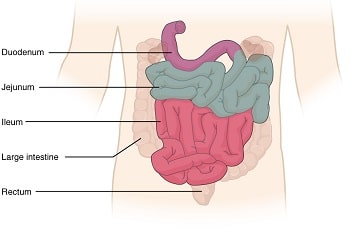
Índice
Los gastroenterólogos reciben capacitación especializada en "endoscopia", que es la práctica de usar un "tubo" pequeño y angosto pero flexible con una cámara incorporada que se usará para navegar por el tracto gastrointestinal durante procedimientos, cirugías o pruebas de diagnóstico para ver si hay enfermedades o crecimientos están presentes.
Cuando se trata de problemas médicos relacionados con el aparato digestivo, buscar el tratamiento de un gastroenterólogo le asegurará que reciba el tratamiento más efectivo posible ya que recibirá tratamiento de un profesional médico que tiene la experiencia de capacitación única y profunda que se traducirá en que reciba atención de tratamiento "integral" y de alta calidad para cualquier complicación médica relacionada con GI que pueda estar experimentando.
Está estadísticamente probado a través del uso de estudios que los gastroenterólogos realizan colonoscopias y atención integral para problemas gastrointestinales con una mayor tasa de éxito en comparación con los tratamientos proporcionados por otros tipos de médicos. Lo que esto significa para usted es que recibirá un tratamiento que detectará con precisión la presencia de cáncer o pólipos y, al mismo tiempo, disminuirá la probabilidad de que surja una complicación médica del tratamiento (los pacientes tratados con GI también pueden esperar pasar menos tiempo en el hospital).
En este artículo, cubriremos las "15 principales señales de advertencia de que necesita ver a un gastroenterólogo" que lo ayudarán a determinar si tiene los síntomas de una complicación médica que requeriría la atención y el tratamiento de un GI. médico.
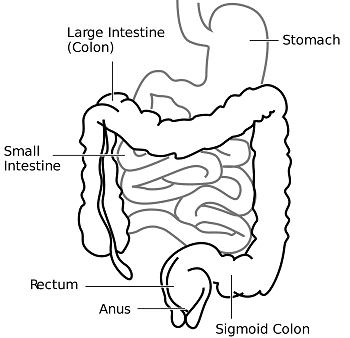
Cuando empiece a reconocer "dolores" recién formados o cualquier signo/síntoma derivado de la región del tracto digestivo, como acidez estomacal, dolor abdominal, diarrea o estreñimiento, es posible que se esté preguntando si debe o no visitar a un médico regular, un médico internista o un gastroenterólogo (especialista en aparato digestivo). A quién elija para diagnosticar su(s) condición(es) al comienzo de su aparición puede variar en una serie de factores.
En algunas situaciones, tomar la decisión correcta de ver a un médico o a un gastroenterólogo puede no estar claro, pero a continuación lo ayudaremos a comprender los síntomas para detectar problemas gastrointestinales que deben ser diagnosticados y tratados por un médico gastrointestinal.
Si recién ahora está experimentando síntomas o dolores en el área digestiva por primera vez, entonces el primer paso puede ser buscar el consejo de su médico de atención primaria, como su médico de atención primaria o un internista.
Con suerte, será un médico con el que haya establecido una relación a lo largo del tiempo, ya que tendrá acceso total a su historial médico y de tratamiento, que se puede revisar para ayudar a determinar qué está causando los síntomas que está experimentando.
Una vez que se reúna con su médico y le proporcione sus síntomas, se realizará un examen físico para determinar si se deben realizar pruebas o no. Una vez que el médico haya completado el examen físico y tenga una buena idea de lo que le está causando los dolores gastrointestinales repentinos, puede determinar que el tratamiento debe ser proporcionado por un especialista que pueda brindar atención de recuperación afectiva. En este caso, el “especialista” sería el Gastroenterólogo.
Dr. Tarugu, un gastroenterólogo galardonado con experiencia del sur de Florida recomienda que las personas que constantemente experimentan brotes esporádicos o recurrentes en afecciones previamente diagnosticadas (como colitis ulcerosa, enfermedad de Crohn o SII) busquen tratamiento de inmediato con un gastroenterólogo para evitar un mayor crecimiento o complicación madurez.
Durante su tratamiento con el gastroenterólogo, él / ella actualizará a su médico con el estado de su (s) condición (es) y el progreso que se está logrando. Estas actualizaciones ayudarán a su médico de atención primaria a comprender bien su estado, lo que ayudará al médico a brindarle la atención adecuada en la lista como apoyo posterior a la recuperación. Un par de otras enfermedades gastrointestinales que los médicos GI tratan son enfermedades que se encuentran dentro del área del páncreas o el hígado.
Si su médico de atención primaria sospecha que están surgiendo problemas en estas áreas, entonces es seguro asumir que lo derivarán a un gastroenterólogo local para un diagnóstico detallado y así poder diseñar un plan de tratamiento.
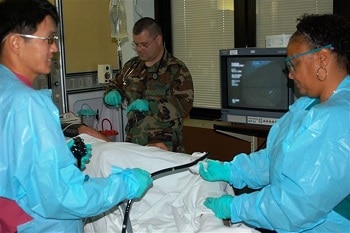
Cada uno de ellos son signos únicos de afecciones potencialmente graves que no deben descartarse como "sin importancia", ya que cada uno de los síntomas enumerados anteriormente podría dar lugar a señales de complicaciones mucho peores si no se diagnostican y tratan "a tiempo".
A continuación, cubriremos lo que podría significar cada uno de estos síntomas y por qué es importante buscar la orientación y el tratamiento de un médico GI lo más rápido posible.
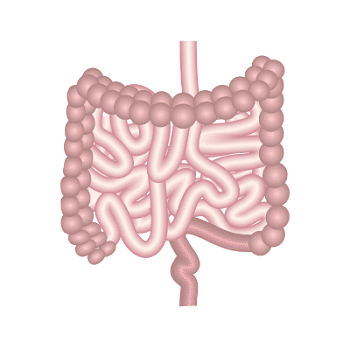
Se estima que un total de 60 millones de personas en los EE. UU. experimentan y sufren acidez estomacal un promedio de al menos una vez al mes con un estimado de 15 millones de personas que padecen la afección "diariamente". Los síntomas de indigestión ácida (acidez estomacal) son más comunes entre las mujeres embarazadas y las personas mayores.
Hay una condición llamada "reflujo gastroesofágico", que es una condición corporal que hace que el ácido del estómago fluya hacia atrás y regrese al esófago. Debido a esto, algunas personas, lamentablemente, tendrán la experiencia de los síntomas derivados de esto cuando se lleve a cabo este proceso (que puede ser diario, semanal o mensual).
Uno de los primeros signos de ver a un gastroenterólogo por acidez estomacal es la experiencia de sentir una incomodidad acalorada proveniente de la región detrás del esternón. Esta sensación tiende a transitar a la zona de la garganta y el cuello por lo que molestias de cualquier tipo en esta zona debe ser señal de alerta que necesita ver a un gastroenterólogo para el diagnóstico/tratamiento.
Otra señal de advertencia de reflujo ácido es un sabor "agrio" o "amargo" en la parte posterior de la garganta, ya que este es el sabor del ácido del estómago. Debido a que los síntomas de presión caliente de la acidez estomacal pueden durar hasta varias horas (y empeorar al comer), tal agitación constante en esta área debería incitarlo a buscar pruebas de diagnóstico inmediatas de un médico gastrointestinal.
Si experimenta estos síntomas 2 o más veces por semana, o experimenta pérdida de peso, pérdida de sangre o adherencia de alimentos, es posible que tenga un caso de acidez estomacal muy grave. Si surgen tales síntomas, es posible que tenga una afección conocida como "enfermedad por reflujo gastroesofágico" (o "ERGE por inyección").
Antes de que pueda comenzar a comprender las causas exactas de la ERGE o la enfermedad por reflujo gastroesofágico, primero debe comprender cuáles son las causas de la acidez estomacal. La mayoría de las personas sentirán la agitación de la acidez estomacal si el revestimiento del esófago entra en contacto con los fluidos estomacales durante un período de tiempo prolongado. .
Estos fluidos estomacales consisten en algunos materiales diferentes que incluyen enzimas y ácidos relacionados con la digestión. Como el ácido del estómago permanece en contacto con el revestimiento del esófago, se puede producir una lesión en el esófago que provoca una sensación de incomodidad, ardor y dolor.
Mientras que una válvula muscular hacia la parte inferior del esófago (conocida como el "esfínter esofágico inferior" o "LES") mantiene el ácido en el estómago y lejos del esófago (cuando funciona correctamente), este no es el caso si una persona tiene ya sea "enfermedad por reflujo gastroesofágico" o "ERGE", ya que el "LES" tiene la tendencia a relajarse regularmente, lo que permite que el ácido del estómago regrese al esófago.
Tal síntoma debe ser tratado tan pronto como sea posible por un médico gastrointestinal para detener el desarrollo de más complicaciones.
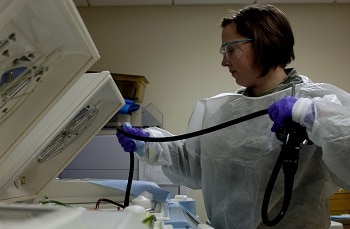
Cuando visite a su médico GI, se formulará un plan de tratamiento/recuperación basado en los resultados del diagnóstico.
Si se automedica más de dos veces por semana para la acidez estomacal, esto por sí solo es una señal de que necesita ser tratado por un gastroenterólogo. Las condiciones que no son tratadas por un GI experimentado pueden conducir potencialmente a una complicación más grave.
¿Tiene problemas para tragar alimentos? ¿Experimenta dificultad al tomar líquidos? ¿Está experimentando hinchazón esporádica o constante en el área de la garganta? Si es así, esto podría ser una señal de advertencia de una afección menor o grave que debería llevarlo a buscar un gastroenterólogo para el diagnóstico. "Cualquier tipo de dolor o agitación causado por beber agua puede ser una señal de advertencia de un problema gastrointestinal grave", afirmó el Dr. Vikram Tarugu, un gastroenterólogo galardonado, certificado por la junta y experimentado.
Otros signos de advertencia a tener en cuenta que el gastroenterólogo deberá saber es si su dificultad para tragar se acompaña o no de hipo, ronquera en la garganta, tos frecuente o sensación de saciedad después de comer una porción muy pequeña de comida. Si se presenta alguna de estas señales de advertencia potencialmente peligrosas, posiblemente la causa podría ser un cáncer de esófago. Por lo tanto, si experimenta alguna de estas señales de advertencia, no lo dude. buscar consejo de su médico de cabecera o un gastroenterólogo si ya tiene una relación con uno. ¿Huele un olor inusual por el paso de gas? Esto podría ser una señal de advertencia de parásitos infecciosos
Sorprendentemente, en promedio, la persona típica expulsa casi 2 litros de gas diariamente, a menos que se produzcan anomalías en el tracto digestivo. Una señal de advertencia a la que debe prestar mucha atención es si experimenta dolor o malestar en el área abdominal durante los momentos en que expulsa gases o al defecar.
Además, si las deposiciones y los gases han comenzado a tener un olor inusualmente horrible, esto podría ser una señal de que tiene giardia, que es un parásito que irrita e infecta los intestinos. Dado que la giardia puede empeorar si no se trata, no se debe pasar por alto una señal de advertencia como esta.
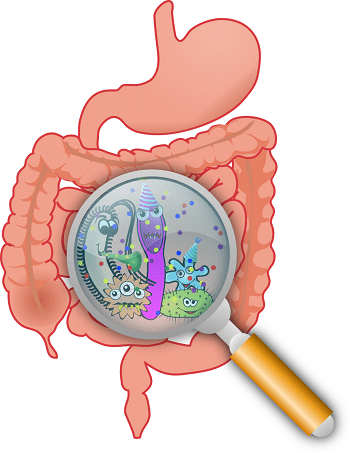
Todos hemos experimentado hinchazón en algún momento de nuestras vidas, pero si se vuelve persistente, existe la posibilidad de que haya una causa subyacente. Si te has dado cuenta de que tienes dificultades para ponerte los shorts cuando hace solo unos días los usaste sin problemas, es posible que no tengas la culpa de que "no vayas al gimnasio".
La hinchazón simplemente ocurre cuando nuestra ingesta de comida/aire es demasiado y nuestro cuerpo no se deshace de ella adecuadamente. Sin embargo, si la hinchazón comienza abruptamente sin razón aparente (no ha comido en mucho tiempo) y ocurre junto con la presencia de dolor o sangre en las heces, esto podría ser una señal de advertencia de que es hora de ver a un gastroenterólogo.
Tal signo posiblemente podría significar que ha comenzado el desarrollo de la enfermedad celíaca, ERGE (enfermedad por reflujo gastroesofágico), SII (síndrome del intestino irritable), estreñimiento o cálculos biliares.
En cualquier caso que reconozca sangre en sus heces o dolores agudos anormales en el área abdominal al expulsar gases o al defecar, entonces definitivamente necesita ser diagnosticado y tratado por un médico gastrointestinal.
Una señal de advertencia que debe ser diagnosticada por un médico gastrointestinal es la pérdida de peso repentina, inesperada e inexplicable. Si bien la pérdida de peso repentina podría atribuirse a otros problemas relacionados con la salud, por lo general, el mejor lugar para buscar la raíz del problema es el sistema digestivo.
El Dr. Tarugu, un gastroenterólogo certificado por la junta en el sur de Florida con más de 2100 procedimientos completados con éxito, afirmó que "los primeros problemas que desea aislar como la causa de la pérdida de peso repentina es el cáncer de estómago, páncreas o colon".
Por lo tanto, si experimenta una pérdida de peso repentina, consulte a un gastroenterólogo para asegurarse de que no se trate de una enfermedad cancerosa o celíaca o de Chron (que disminuiría la capacidad de su cuerpo para absorber nutrientes vitales).
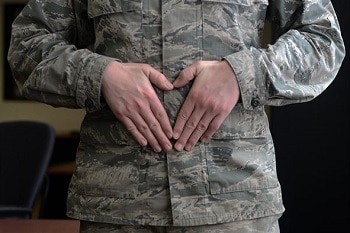
Al defecar, probablemente sea un poco preocupante notar algunos rastros rojizos en el papel higiénico, ya que todos sabemos que el sangrado de esa área no es normal. El sangrado del área del recto puede ser un signo de una afección potencialmente peligrosa y debe diagnosticarse y tratarse "inmediatamente".
Si bien es posible que el sangrado esté causado por las hemorroides, si no es así, será absolutamente necesario buscar un gastroenterólogo, especialmente si el sangrado es recurrente y si la persona tiene más de 40 años.
La indigestión (también conocida médicamente como "dispepsia") es el término para describir una condición que involucra múltiples síntomas diferentes que surgen durante la ingesta de una comida. Algunos de estos síntomas pueden incluir la sensación de estar "lleno" una vez que haya terminado una comida, además de un "dolor" o una "sensación de ardor" en el área abdominal superior.
La indigestión es una afección bastante común entre los adultos de mediana edad y ocurre mensualmente, semanalmente o incluso a diario.
Si experimenta alguno de los siguientes síntomas, es esencial buscar consejo y tratamiento de un médico GI para prevenir complicaciones:
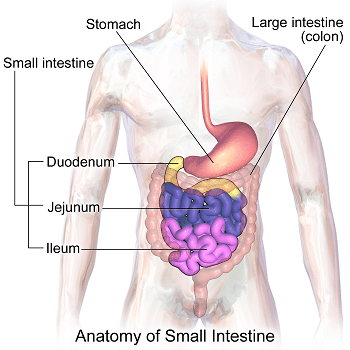
Cuando visite a su médico GI, se formulará un plan de tratamiento/recuperación basado en los resultados del diagnóstico.
Las posibles sugerencias de tratamiento pueden incluir:
Tenga en cuenta que la indigestión y la acidez estomacal son dos condiciones diferentes y cada una tiene sus propios síntomas únicos.
Sin embargo, si está experimentando los síntomas de ambos, entonces es posible que esté sufriendo de los dos. De todos modos, ya sea que la agitación sea menor o grave, es importante que tome en serio esa señal de advertencia y busque tratamiento de un médico GI que lo ayudará a diagnosticar y remediar la(s) condición(es).
Nausea is quite an unpleasant experience and can use intense feeling of dizziness, minor to severe discomfort and paint in the abdominal area. On the other hand, often times accompanies by nausea, vomiting is the occurrence of a contraction from the stomach that during times of nausea can help one feel a bit better as the content of stomach is during vomiting is the process in which it’s propelled up thru the esophagus.
Intense and consistent vomiting could possibly be a warning sign of a Gastroenteritis which can be treated by a gastroenterologist. Gastroenteritis is known to be a viral infection that causes inflammation within the digestive tract and can be treated thru the use of medication(s) which will be recommended by the gastroenterologist that you choose to visit.
Are you experiencing a dullish pain in the stomach, weight loss, the undesired to intake food due to pain or nausea/vomiting? If so, this could be a sign of a minor yet serious matter. Such warning signs could possibly mean that you’re suffering from a Peptic Ulcer which can be diagnosed by a gastroenterologist thru the use of an upper GI series or an endoscopy.
If you’re experiencing upper abdominal pains (one of the biggest signs of a stomach ulcer ) be sure that you seek the diagnosis/treatment from a GI doctor so you can have it treated while preventing the possibly of further complications arising from the condition.
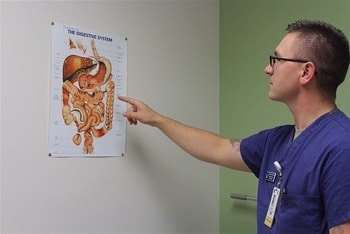
Individuals that may have GI disorders can suffer from warnings signs that are both painless and pain-induced. Such symptoms can be diarrhea/constipation (in some cases, irritable bowel syndrome). Such signs, whether they’re painful or not, could possibly be a sign of a condition other then IBS known as “centrally mediated abdominal pain syndrome” (or “CAPS” for short) which used to be medically referred to as “functional abdominal pain syndrome” (FAPS).
CAPS is a gastrointestinal disorder and is typically caused by a change in the nerve impulse sensitivity and will cause intense and frequent pain in the abdominal section which for some individuals will be quite severe.
In some cases, pain can be so intense and persistent that it’ll affect you in the similar way as the pain from a tooth ache as it can consume your focus/life since it has a tendency to “not go away” for extended periods of time. If such warning signs are present, seek counsel from a gastroenterologist where an antidepressant may be prescribed to not only reduce anxiety caused by the pain but to help alleviate the pain all together.
If you’re experiencing the feelings of belching, bloating or flatulence (build-up of gas in the alimentary canal), these could be warning signs that you you could possibly be suffering from a number of different conditions including allergies to certain foods, lactase deficiency, peptic ulcer disease or a H. Pylori Infection. Each of these we’ll cover below more in-depth so you can determine the possible cause(s) of your symptom(s).
Food Allergies – While not typical, the most severe allergic reaction that one can inherit from the ingestion of food is known as “anaphylaxis” which could possibly be life-threatening. Studies have shown that 90% of all allergies related to foods are caused from the ingestion of soy, wheat, shellfish, tree nuts, fish, peanuts, milk and eggs. If pain tends to arise after consuming such food items then this may be a signal that you need to seek the treatment of a gastroenterologist.
Lactase Deficiency – While lactase deficiency is pretty common with an estimated 3 million cases per year alone within the US, it’s an issue that’s brought upon individuals whose body has difficulty with digesting the sugar contents within dairy products. These issues arise in the digestive tract and can be treated by a GI doctor thru the use of recommended off-the-shelf medication(s) or by a prescribed medication (depending on the severity of your condition.

Individuals suffering from “Lactase Deficiency” can expect such warning signs to arise within 30 minutes to 2 hours from the consumption of milk or other food items containing dairy.
While symptoms aren’t always noticeable there are some warning signs that if arise should prompt you to see a gastroenterologist.
If you experience persistent and severe abdominal pain, have difficulty with swallowing or have bloody/black vomit that has the appearance of coffee grounds then seek diagnosis from a GI doctor for treatment as these are all warning signs that need attention before complications arise.
If you experience a yellowing of the eyes/skin then it’s very well possible that this is the warning sign that Jaundice is occurring. Jaundice is a condition in which there’s an excessive amount of bilirubin in the blood which is known, medically, as hyperbilirubinemia.
Bilirubin is a “yellow pigment” substance that affects the color pigmentation in the white of your eyes and your skin tone.
If you’re experiencing such signs of this condition schedule an appointment to see a GI doctor as quickly as possible as if not, further complications could develop which could lead to:
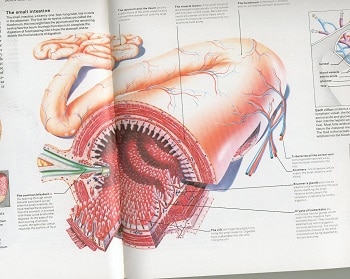
One warning signing of a possibly serious complication that should be diagnosed immediately is pain experienced in the abdominal section with the occurring pain spreading/radiating to your back. Such a feeling is a strong indicator and warning sign of “gallstone pancreatitis ”.
Gallstones are a pretty common cause of pancreatitis and this is caused by gallstones that develop in the gallbladder to block the bile duct which puts a stop to the pancreatic enzymes from being able to travel to your small intestine (which forces them to return to the pancreas).
During this process, these pancreatic enzymes will agitate the pancreas cells which will cause inflammation which can cause a great deal of pain that will radiate from the abdomen to the back. In some cases, this feeling of pain will also be accompanied by a tingling, prickly sensation. If such warning signs arise, seek attention from a physician or preferably a gastroenterologist who will help to diagnose the issue so proper treatment can be prepared/prescribed.
In the event that the gastroenterologist determines that your pancreatitis us due to the gallstones then an ECRP (Endoscopic Retrograde Cholangiopancreatography) will be performed which is a procedure conducted by the GI doctor to remove the stones.
For heavier/obese women it’s important to take cautious note of any pain that stems from the upper right-hand side of the abdominal sections as such a pain could be the indicator of “gallstone pancreatitis” (a prominent condition for heavier-set women). What’s causing such pain is the process of the gallstones blocking the bile duct which causes a chain reaction as this will stop any/all pancreatic enzymes from traveling to the small intestine providing the enzymes with no choice but to return to the pancreas. If the gallstones travel from the gallbladder to the common bile duct, gallstone pancreatitis can develop which is a condition that can continue to worsen and mature in pain while also leading to further complications if not treated.
If you’re medically considered to be “obese” and have had such pain on a regular or consistent basis, consult a GI doctor as treatment in the form of medication and surgeries are available (depending on the severity of the condition). Only making 1-2 bowel movements per week? Difficulty with going? Pain during defecating?
There are a few signs to look out for and notate when looking for signs of possible gastrointestinal complications. A few of these signs include difficulties with making bowel movements, only making 1-2 bowel movements per week or if you experience pain during defecating. Constipation is considered to be present whenever an individual is making only 1-2 bowel movements per week so if this persists this alone could be a warning sign of “anal fissure”. With an estimated 200,000 cases per year within the US alone, anal fissure is a condition that refers to the tearing in the lining of the anus which can cause an immense amount of pain during all three scenarios we referred above (making bowel movements and pain during throwing-up).
Anal fissures develop throughout the specialized tissues that line both the anus and anal canal and this is called the “anoderm”. The reason this can be (and more than likely “will be”) so painful is because of the over-abundance of nerves located within the anal canal. Diagnosis and treatment from a gastroenterologist is recommended. Typically, diagnosis of this condition can be determined by the physical inspection of area with either medication or surgery being recommended to treat (depending on the severity of the anal fissure).
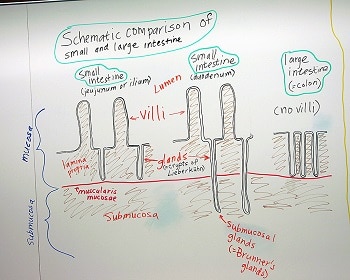
If you’re experiencing symptoms of a condition that includes intense and regular fevers, nausea/vomiting and diarrhea then notate these warning signs to show a gastroenterologist as these are signs of a possibly serious condition known as “bacterial gastroenteritis” which will need to be treated to prevent complications that could arise.
Bacterial gastroenteritis is a condition that develops and occurs whenever bacteria infiltrates your gut can and initiates an infection. If this occurs, inflammation will develop both in your stomach and intestines which will cause discomfort to say the least. Typical symptoms of “bacterial gastroenteritis” includes severe, extreme and persistent cramps in the abdominal area in addition to diarrhea/
While viruses are responsible for the majority of gastrointestinal infections bacterial infections are nearly just as common. A majority of people refer to bacteria-initiated infections as “food poisoning”.
There are a few different causes of “bacterial gastroenteritis” which can be poor hygiene habits, coming in close contact with pets or animals or from consuming foods/fluids that are contaminated with bacteria (even air-borne bacteria). If such warning signs arise, seek medical attention from a physician or preferably a gastroenterologist so the issue(s) can be properly treated to above any further development of bacterial growth.
First and foremost, any sign(s) of rectal bleeding is “not normal” and should never, in any scenario, be dismissed as a minor or non-severe matter as it’s a serious occurrence that requires the attention and treatment from a gastroenterologist.
One of the most prominent signs and symptoms of “irritable bowel syndrome” (IBS) is rectal bleeding and the presence of blood in the stool. In some circumstances, a warning sign is not making a bowel movement at all or only 1-2 times per week.
Blood expressed from the body caused IBD will appear to be “bright red” while if blood is originating from the upper area of the digestive tract the blood will be darker (dark/black stools). If such a sign has arisen be sure that you notate the darkness of the blood so you can provide this detail to a gastroenterologist who will use this information as a part of the diagnosis and treatment(s). In any case, if bleeding from the rectum is “severe” or if you’re throwing-up blood than this is a sign of a severe condition occurring which needs medical attention “immediately”.
Furthermore, such signs could also be a warning sign that you’re suffering from either “Crohn’s disease” or “ulcerative colitis” which are also conditions that you’ll want to have inspected by a GI doctor. Chron’s disease is a condition affecting 200,000 individuals per year and is a chronic, inflammatory irritable bowel disease that runs alone the digestive tract lining.
Ulcerative colitis is another chronic disease that inflames the bowel area which results in the digestive tract becoming inflamed. If any of the warning signs above are occurring, seek medical attention. You don’t want to take the chance of such conditions maturing in growth/size as not only could further complications arise but you may have to undergo additional treatments which otherwise could’ve been avoided had you have the condition(s) treated early on.
Experience vague or minor abdominal pain with a change in bowel movements last for 3+ months? Any changes in your normal bowel movement habits that are lasting for 3+ months is a sign that your body is changing, or, is changing due to an irregular occurrence/condition that should be looked at by a GI doctor; especially when you’re experiencing changes in bowel movement that are lasting for an extended period of time.
Irritable Bowel Syndrome (IBS) is a condition that can spark a significant amount of pain to its victims and will initiate a discomforting agitation feeling in the abdominal area. There are some very common symptoms of having IBS which include constipation, gas and diarrhea (in addition to a pain-induced belly). Having your IBS diagnosed for the severity will help you to have a planned pain-management regiment that will be created for you by the gastroenterologist.
When your stomach is experiencing pain it’s caused from the constipation or the diarrhea although is the painful feeling(s) diminish upon making a bowel movements then more than likely, your symptom(s) are an indicator of your pain being tied to a condition other than IBS (consult a GI doctor for diagnosis). This pain is initiated by contractions which can and will cause intolerable pain that will consume your life, make it difficult to rest and will make it difficult to focus on aspects of life (work for example).
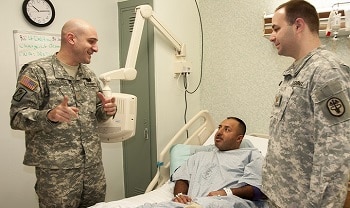
When it comes to your health it’s never a smart idea to over-look symptoms of possible health-related complications and rectal pain, bleeding from the rectum or the presence of blood in your stool are warning signs of a possibly serious complication. If you’re experiencing any of these signs, there’s a possibility that you body is suffering from one or more conditions that include it hemorrhoids, anal fissure, or anorectal cancer (although this is rare).
Hemorrhoids is a condition that should be treated by a GI doctor as Hemorrhoids is a medical condition that means the veins in the rectum and anus have become “swollen” which can cause the veins to bulge which will then result in severe agitation especially during bowel movements. Swollen hemorrhoids may be referred to by your gastroenterologist as “piles” as this is a commonly used medical term for this particular condition.
Hemorrhoids , depending on the severity of you case(if it’s determined by the GI doctor that you in-fact have it), you may undergo an operational procedure where the gastroenterologist will make use of specially designed medical equipment (not that intrusive) to “shrink” and “remove” the hemorrhoids which could actually be done on-site at the GI doctor’s office. Another treatment option is the GI doctor administering an injection in to the hemorrhoid with a specially formulated solution that will result in scarring the hemorrhoid to close it off.
Fisura anal is another condition that could be occurring if bleeding from the rectum is prevalent as this condition is the occurrence of “tearing” in the anus lining which will cause blood to originate out of the rectum which can be noticeable by looking at the stool (is blood noticeable?).
Finally, bleeding from the rectum can “possibly” be a sign of “anorectal cancer ” although this is quite uncommon and not the typical cause of bleeding from the rectal region. “Anorectal cancer” is a malignant infested disease that forms within the tissues and glands of the anus. If you’re suffering with HPV (human papillomaviurs) will increase the chances of “rectum cancer development” so it’s vitally important that you seek diagnosis is warning signs such as rectal bleeding occur.
For elderly/older women, experiencing a bulge or in the rectal area (comparable to a stomach bulge) is a serious sign of either “rectal prolapse” or “vaginal prolapse”; serious yet treatable conditions that can be cured by a gastroenterologist thru the practice of medication(s) or procedural operations.
In the United States it’s estimated that 10% of all elderly women suffer from rectal prolapse with signs ranging from rectal bleeding to the feeling of a “bulge” in the rectal region (noticeable to the touch). Rectal prolapse, specifically, is a condition in which the parts of the large intestine will protrude out of the anus and will cause quite a bit of discomfort, pain, difficulty with making a bowel movement and rectal bleeding.
If such signs occer, don’t procrasitance on receiving treatment. Consult with a GI doctors so treatment preparation(s) can be facilitated.
Vaginal prolapse is another condition that rectal bleeding can be a warning sign of. Vaginal prolapse is a serious condition where the bladder, rectum, urethra, small bowel or uterus will begin to fall out place.
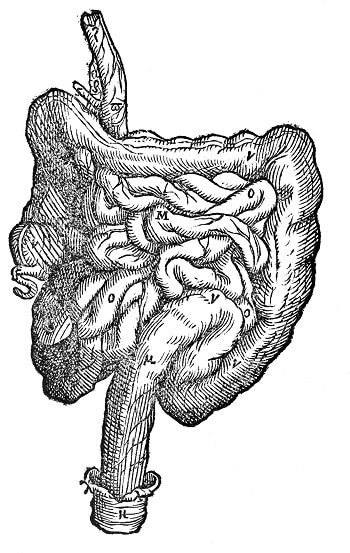
If any of these warning signs occur, it’s time to visit a gastroenterologist so you can receive an accurate diagnosis and treatment.
When it comes to your overall health, maintaining your normal body functions and avoiding complications a gastroenterologist can is a great go-to medical professional as you’ll be able to take advantage of the specialized training that the GI doctors has received so you can alleviate yourself of medical complications.
If any of this signs on this list has occurred, don’t hesitate to seek the intervention of a GI doctor. It’s paramount to ensuring the longevity of your health and will provide you with the peace-of-mind knowing that your symptoms are being affectively diagnosed and of course, treated.
We hope you found this guide helpful. Your gastrointestinal health is important to us and it’s our sincere mission to provide useful medical advice and suggestions.
 Tomar aceites esenciales para su SII
Tomar aceites esenciales para su SII
 Más personas necesitan capacitación en el uso de epinefrina para salvar vidas, dicen los defensores
Más personas necesitan capacitación en el uso de epinefrina para salvar vidas, dicen los defensores
 2015:el año de la acción
2015:el año de la acción
 ¿Qué debo comer cuando tengo acidez estomacal?
¿Qué debo comer cuando tengo acidez estomacal?
 ¿Por qué los hippies huelen a pachulí?
¿Por qué los hippies huelen a pachulí?
 El Simposio científico de LABVOLUTION se centra en cuestiones clave de las ciencias de la vida
El Simposio científico de LABVOLUTION se centra en cuestiones clave de las ciencias de la vida
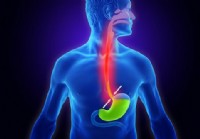 ¿Cuáles son los mejores alimentos para comer si tiene ERGE?
¿Qué es la ERGE? Hay muchos alimentos deliciosos que pueden ayudar a aliviar sus problemas de ERGE, como alimentos ricos en fibra, alimentos con un alto nivel de pH y alimentos acuosos. La acidez
¿Cuáles son los mejores alimentos para comer si tiene ERGE?
¿Qué es la ERGE? Hay muchos alimentos deliciosos que pueden ayudar a aliviar sus problemas de ERGE, como alimentos ricos en fibra, alimentos con un alto nivel de pH y alimentos acuosos. La acidez
 Prueba de expulsión de globo para defecación disinérgica
La prueba de expulsión del globo es una prueba simple que se usa para identificar problemas con la defecación. La prueba implica la inserción de un globo en el recto, que luego se le pide que evacúe.
Prueba de expulsión de globo para defecación disinérgica
La prueba de expulsión del globo es una prueba simple que se usa para identificar problemas con la defecación. La prueba implica la inserción de un globo en el recto, que luego se le pide que evacúe.
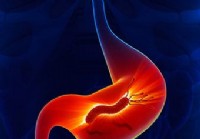 Infección por Helicobacter Pylori (H. pylori)
Helicobacter pylori causa inflamación crónica (gastritis) al invadir el revestimiento del estómago y producir una citotoxina denominada citotoxina A vacuolizante (Vac-A) y por lo tanto puede conducir
Infección por Helicobacter Pylori (H. pylori)
Helicobacter pylori causa inflamación crónica (gastritis) al invadir el revestimiento del estómago y producir una citotoxina denominada citotoxina A vacuolizante (Vac-A) y por lo tanto puede conducir